
En la imagen: Chávez habla en el acto de inauguración de un centro cultural venezolano en Moscú, durante su visita en junio de 2007. Sergey Ponomarev, AP Photo.
Una nota firmada por Max Delany asegura que el actual presidente ruso, Dmitry Medvedev, cuidará su imagen liberal respaldando las ventas de armamento y las inversiones privadas en Venezuela, pero mantendrá las reuniones en un “bajo perfil” impidiendo a Chávez utilizar la visita como una plataforma para atacar a los EEUU. Serán pocos los reporteros que cubrirán la visita, pues en el Kremlin “hay limitaciones de espacio”.
El presidente de Venezuela parece decidido a firmar una serie de grandes contratos de armamento durante su visita oficial a Moscú este martes, pero difícilmente ganará el apoyo del Kremlin para sus característicos ataques a los Estados Unidos.
Con sus ganancias petroleras récord, Venezuela se ha convertido en un comprador regular de armas rusas, y cualquier nuevo negocio profundizaría los lazos entre ambos países y pondría nerviosos a los EEUU, que dejaron de venderle armamento al país latinoamericano en 2006.
Chávez se reunirá por separado con el Presidente Dmitry Medvedev y el Primer Ministro Vladimir Putin el martes. Mientras se encuentre en Moscú, la delegación venezolana discutirá la posibilidad de crear una banca conjunta y fondos de inversión, y conversará con importantes compañías rusas que están ansiosas de expandir sus operaciones en Venezuela.Un número limitado de reporteros será acreditado para cubrir la reunión entre Medvedev y Chávez, aseguró un portavoz del Kremlim, citando lo limitado del espacio.
Al reunirse con un líder izquierdista tan vocal, a quien incluso los funcionarios del Kremlin describen -”off the record”- como “controversial” podría no ir bien con la imagen liberal de Medvedev, cuya administración está preocupada por que la visita se mantenga en un bajo perfil.“Venezuela es un socio muy importante para Rusia en América del Sur”, dijo el vocero de Putin, Dmitry Peskov. “Tenemos planes muy ambiciosos para trabajar en el mercado venezolano”.
La visita a Rusia en la primera parada de una gira europea en la que Chávez se dirigirá a Minsk para conversar con su contraparte bielorruso, Alexander Lukashenko, a quien los EEUU ha denominado como el último dictador de Europa.
Originalmente planificada para la mañana del lunes, la llegada de Chávez se pospuso sin explicaciones hasta el martes, reportó Interfax, citando a una fuente diplomática no identificada en Moscú.
Durante el tiempo que pasará en el país, Chávez ordenará más de 1.000 millones de dólares en armamento ruso, incluyendo 20 sistesmas de defensa misilística Tor-M1 y tres submarinos de diesel Varshavyanka, reportó Interfax. Venezuela también está considerando un contrato para obtener seis submarinos no-nucleares más, varias docenas de embarcaciones miitares y aviones de reconocimiento Ilyushin, dijo la fuente. También se firmarán los contratos para instalar centros técnicos en Venezuela para hacer servicio a los equipos que ya están en Venezuela.
Antes del viaje, Chávez dijo que quería adquirir tanques rusos, describiéndolos como “muy modernos y rápidos”, en una entrevista con Itar-Tass en Caracas. Los medios nacionales han reportado que Rusia podría ofrecer a Venezuela hasta 800 millones de dólares en créditos para financiar cualquier posible compra.
En mayo, Kommesant reportó que los tratos de armamento podrían alcanzar los 2.000 millones de dólares e incluir helicópteros de combate Mi-28 y aeroplanos Ilyushin. Interfax reportó que ya se ha recibido la orden por los helicópteros y que su entrega comenzaría en el segundo semestre de 2009.
Un portavoz de Russian Technologies, la compañía madre de la exportadora estatal de armamento Rosoboronexport, se rehusó a hacer comentarios sobre los detalles de los contratos. El portavoz dijo que los más altos ejecutivos de la empresa matriz muy probablemente asistirían a las pláticas.
Los oficiales del Servicio Federal para la Cooperación Técnica y Militar declinaron comentar y pidieron que se les enviaran las preguntas vía fax. La Embajada de Venezuela en Moscú tampoco comentó sobre posibles compras de armas.
Desde 2003, Venezuela ha adquirido unos $4.400 millones de equipos militares rusos, convirtiéndose en el tercer mayor comprador de armas rusas en el mundo. El creciente comercio con América Latina se desarrolla mientras que algunos de los clientes tradicionales de Rusia, como la India, expresan su preocupación acerca de la calidad de los pedidos entregados por Rusia. A principios de este año, Algeria devolvió 15 cazas MiG por razones técnicas.
Rusia ha entregado 100.000 rifles Kalashnikov a Venezuela el año pasado, y aceptó construir dos plantas para producir el rifle de asalto en el país bajo la modalidad de licencia. Un total de 24 cazas Sukhoi y unos 50 helicópteros de ataque están en camino a Venezuela.
A pesar de las evidentes contracorrientes políticas, Venezuela se ha convertido en un socio de negocios cada vez más importante para la industria rusa de armamento, dijo Ruslan Pukhov, director del Centro de Análisis de Estrategia y Tecnología. Rusia está ansiosa de ayudar a países que compartan su política de un mundo multipolar, pero no está interesada en armar a los enemigos de los Estados Unidos, dijo Pukhov.
Las fuerzas armadas venezolanas están bajo un programa de rearme masivo, patrocinado por extraordinarias ganancias petroleras, que está destinado a completarse en 2012. Chávez asegura que este rearme es necesario para disuadir un potencial ataque de los Estados Unidos o de la vecina Colombia, que ha recibido billones de dólares en asistencia militar norteamericana en los últimos años.
En marzo, Chávez ordenó el desplazamiento de tropas venezolanas hacia la frontera con Colombia, después de que Colombia lanzara un ataque contra una base rebelde de las FARC en territorio de Ecuador. Colombia ha acusado a Venezuela de armar a los rebeldes izquierdistas de las FARC, una afirmación que Chávez ha rechazado.
Los representantes de las petroleras LUKoil y de la ruso-británica TNK-BP también se reunirán con la delegación venezuela, reportó Interfax, citando fuentes no identificadas en el interior de ambas compañías. Ambas petroleras están involucradas en trabajo de exploración y evaluación en Venezuela.
Dmitry Dolgov, portavoz de LUKoil, dijo este lunes que “no se descarta” la posibilidad de que Chávez se reuna con ejecutivos de la empresa, que según dijo, ha realizado exploraciones en Venezuela. “Queremos continuar desarrollando nuetro trabajo en Venezuela”, dijo Dolgov.
Chávez también se reunirá con el Alcalde Yury Luzhjov, reportó Itar-Tass, citando a una fuente “informada” no identificada.
La visita de Chávez se produce poco después de la inauguración de Dmitry Medvedev como presidente. Durante el más reciente viaje de Chávez a Rusia, en junio de 2007, el entonces presidente Vladimir Putin se negó a respaldar algunos de los ataques verbales más radicales de Chávez hacia los Estados Unidos.
Mientras Putin y Chávez se dirigían a una manada de reporteros durante su reunión en 2006, la de 2007 en Moscú no fue publicitada ampliamente, pues ocurrió en vísperas de una reunión previamente acordada con el presidente de los EEUU George W. Bush en Kennebunkport, Maine.
Chavez, de todas maneras, aprovechó la oportunidad para atacar a Bush en las ceremonias de apertura de un centro cultural latinoamericano en la Biblioteca de Literatura Extranjera de Moscú durante su visita del año pasado. Una portavoz de la embajada venezolana en Moscú dijo que no estaba al tanto de que se hubiere planificado algún evento cultural durante esta visita de Chávez.
La reportera Anna Smolchenko contribuyó a este reportaje.
http://www.noticias24.com/actualidad/?p=16147Chavez Likely to Get Weapons, Not Support
22 July 2008
By Max Delany / Staff Writer
Venezuelan President Hugo Chavez looks set to put pen to paper on a number of major arms deals during an official visit to Moscow on Tuesday but is unlikely to gain Kremlin support for his trademark attacks on the United States.
Flush with record oil revenues, Venezuela has become a regular buyer of Russian arms, and any new deals would further strengthen ties between the two countries and irk the United States, which stopped selling weaponry to the Latin American country in 2006.
Chavez will hold separate meetings with President Dmitry Medvedev and Prime Minister Vladimir Putin on Tuesday. While in Moscow, the Venezuelan delegation will discuss setting up joint banking and investment funds and hold talks with leading Russian firms keen to expand their operations in the country.
A limited number of reporters will be accredited to cover the meeting between Medvedev and Chavez, a Kremlin spokesman said, citing limited space.
Meeting an outspoken leftist leader whom even Kremlin officials describe off the record as "controversial" may not sit well with the liberal image of Medvedev, whose administration is eager to keep the visit low-key.
"Venezuela is quite an important partner for Russia in South America," Putin's spokesman Dmitry Peskov said Monday. "We have quite ambitious plans for working on the Venezuelan market."
The Russian visit is the first leg of a European tour that will see Chavez head to Minsk for talks with his Belarussian counterpart, Alexander Lukashenko, whom the United States has branded Europe's last dictator.
Originally penciled in for Monday evening, Chavez's arrival was postponed without explanation until Tuesday, Interfax reported, citing an unnamed diplomatic source in Moscow.
During his time in the country, Chavez will order more than $1 billion worth of Russian arms, including up to 20 Tor-M1 missile-defense systems and three Varshavyanka diesel submarines, Interfax reported.
"All questions have already been agreed on for a number of arms contracts, and it's entirely possible that their signing will coincide with Chavez's arrival in Moscow," an unnamed defense industry source said, Interfax reported.
Venezuela is also eyeing up a deal for another six non-nuclear submarines, several dozen military boats and Ilyushin reconnaissance aircraft, the source said. Contracts will also be signed to set up technical centers to service Russian equipment already in Venezuela, he said.
Ahead of the trip, Chavez said he wanted to buy Russian tanks, describing them as "very modern and fast," in an interview with Itar-Tass in Caracas. National media have reported that Russia could offer Venezuela up to $800 million to fund any potential deals.
In May, Kommersant reported that the arms deals could reach $2 billion and include Mi-28 combat helicopters and Ilyushin airplanes. An order has been received for the helicopters and delivery would start in the second half of 2009, Interfax reported.
A spokesman for Russian Technologies, the parent company of state arms exporter Rosoboronexport, refused to comment on the specifics of any deals Monday. He said senior company officials would most likely attend the talks.
Officials at the Federal Service for Military and Technical Cooperation declined to immediately comment and asked for questions to be sent by fax.
The Venezuelan Embassy in Moscow did not comment on any possible arms deals.
Since 2003, Venezuela has bought about $4.4 billion of military hardware from Russia, making it the third-biggest foreign buyer of Russian arms worldwide. The growing trade with Latin America comes as some of Russia's traditional clients, such as India, express worries over the quality of Russian deliveries. Algeria returned 15 MiG jets on technical grounds earlier this year.
Russia has delivered 100,000 Kalashnikov rifles to Venezuela and last year agreed to build two plants producing the assault rifles under license in the country. A total of 24 Sukhoi fighter jets and about 50 attack helicopters are also on their way to Venezuela.
Despite obvious political undercurrents, Venezuela has become an increasingly important business partner for the Russian arms industry, said Ruslan Pukhov, director of the Center for Analysis of Strategies and Technologies. Russia is eager to help countries that share its policy of a multipolar world, but is not out to arm enemies of the United States, Pukhov said.
The Venezuelan armed forces are undergoing a massive rearmament program, funded by record oil revenues, that is set for completion by 2012. Chavez claims that new weaponry is needed to stave off a potential attack from the United States or neighboring Colombia, which has received billions of dollars in U.S. military assistance over the past few years.
In March, Chavez ordered Venezuelan troops up to the border with Colombia after Colombia launched a strike against a FARC rebel base inside Ecuador. Colombia has accused Venezuela of arming the leftist FARC rebels, a claim that Chavez has dismissed.
Representatives at both LUKoil and embattled Russian-British joint venture TNK-BP will also hold meetings with the Venezuelan delegation, Interfax reported, citing unnamed sources inside the companies. Both companies have been involved in exploratory work and evaluation in Venezuela.
LUKoil spokesman Dmitry Dolgov said Monday that "he could not rule out" the possibility that Chavez will meet with company officials. The company has done exploratory work in Venezuela, he said.
"We want to continue and develop our work in the country," Dolgov said.
Chavez will also meet with Mayor Yury Luzhkov, Itar-Tass reported, citing an unnamed "informed" source.
Chavez's visit comes soon after the inauguration of Dmitry Medvedev as president. During Chavez's last trip to Russia in June 2007, then-President Vladimir Putin refused to endorse some of Chavez's more radical verbal attacks on the United States.
While Putin and Chavez addressed a gaggle of reporters during their meeting in 2006, their 2007 meeting in Moscow was not widely publicized ahead of Putin's scheduled meeting with U.S. President George W. Bush in Kennebunkport, Maine.
Chavez still used an opportunity to attack Bush at the opening ceremonies for a Latin American cultural center at Moscow's Library of Foreign Literature during his visit last year. A spokeswoman for the Venezuelan Embassy in Moscow said she was not aware of any cultural events scheduled during Chavez's visit this time.
Staff Writer Anna Smolchenko contributed to this report.
The Moscow Times.com
http://www.themoscowtimes.com/article/600/42/369078.htm
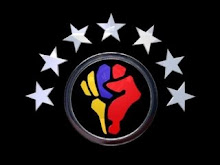



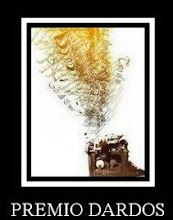











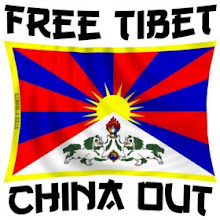










.jpg)


















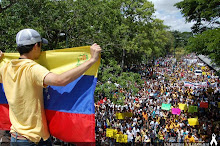





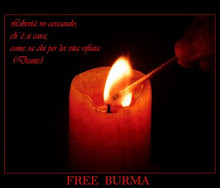

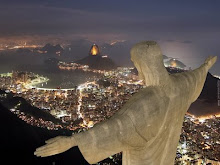




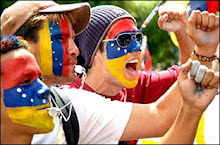








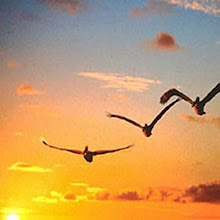






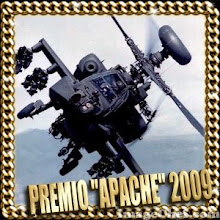




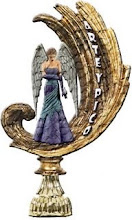






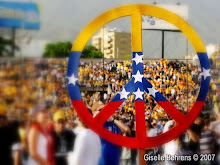





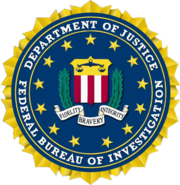



















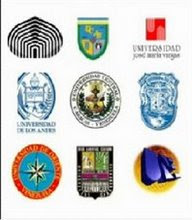


No hay comentarios:
Publicar un comentario